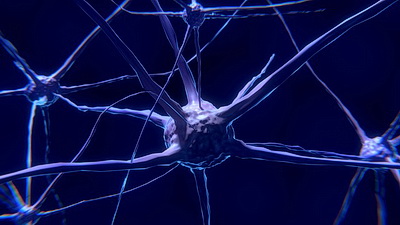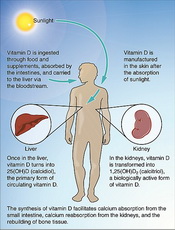Medical Advisory
It should be kept in mind that every diet plan entails different benefits and side effects for each individual; therefore, we are not suggesting that you do this diet on your own.
When it comes to fasting, there are a variety of factors that need to be addressed – your current health for one, as well as how it will affect your lifestyle.
Additionally, other factors must be addressed; such as, whether should you be taking any other supplements or how to manage your exercise routine while on this diet. There are nutritional and medical organizations that will guide you through this process and it is highly recommended that you work with them.
But most importantly, speak to your medical professional if you are interested in taking on the 16:8 diet plan.
With all its benefits and conveniences, the contemporary lifestyle has also brought many problems and unwanted after-effects in our lives. Our stagnant physical routine and unhealthy dietary habits have caused many medical conditions to become prevalent. From hypertension to obesity and uncontrolled diabetes, many existing physical ailments and complications can be attributed to unwholesome foods and a poor dietary routine.
But the bad effects of unhealthy dietary behavior don’t just stop at damaging our physical health. Unhealthy foods and untimely eating routines also have a detrimental effect on our mental health. Various scientific studies have proved that major depressive orders and stress are also becoming rampant due to bad dietary habits.
To deal with all those physical and mental health issues, nutritionists and dietary physicians are relentlessly working on different regimens. Whether it’s a Keto diet plan, Paleo eating plan, or one of those group weight plans, people now have a variety of healthy dietary regimens to choose from. Intermittent fasting is an extension of these efforts.

Eat What You Want, Then Stop
There are many ways to implement intermittent fasting in your daily routine and much has been written about it. For instance, one popular fasting diet plan is called 16:8. This plan entails fasting for 16 hours a day and eating is permitted for the remaining eight hours. One of the reasons for the popularity of this 16:8 diet routine is that it doesn’t put too many restrictions on food selection. People following the 16:8 diet plans can eat almost anything during the cycle of eating since it is the period when you are not eating that is important.
Besides allowing people to eat anything they want, the 16:8 diet has also become all the rage because of its many benefits for physical and mental health. It works like this: When you are not eating, the digestive activity in your body slows down and if you have not eaten for a long period, say 8 – 12 hours, the digestive process is virtually not active at all; subsequently, giving your body the ability to do other things that can effectively increase your health.
Let’s delve into some of the benefits that a 16:8 dietary plan can do.
Can Help in Losing Weight
The majority of the population takes up any diet plan or routine for the sake of weight loss. And a 16:8 diet routine tremendously helps in shedding those extra pounds. This intermittent fasting routine instigates twofold action that results in weight loss.
Limit the Number of Calories

Excessive daily calorie intake is the leading reason for an ongoing epidemic of obesity in the developed world. The 16:8 diet routine limits the number of meals by tightening the window of eating. A person can’t have more than two meals in the eight-hour window until of course he/she is overcompensating for the fasting time by eating more than usual. So, fewer meals mean fewer calories throughout the day.
Rev Up the Metabolic Rate
An actively working metabolism is a sign of a healthy body. Faster metabolic rate quickly burns the calories thus leaving very few of them to get deposited in the body. It has been proven that fasting can help in ramping up the metabolic rate by 3.6 to 14 percent.
On one hand, a 16:8 diet routine helps in reducing your daily calorie intake value. On the other hand, it catalyzes metabolic rates resulting in an efficient calorie-burning regimen. Both these phenomena eventually result in weight loss. A study has revealed that intermittent fasting and calorie restriction can result in a weight loss of 3 to 8 percent in a period of 3-24 weeks.
Important note:
Since the 16:8 diet routine doesn’t bar people from any particular food item, people who are shedding weight don’t face the issue of muscle loss, which is an ongoing drawback of several diet plans. Apart from losing weight, people can experience some other benefits by taking up the 16:8 diet routine.
Helps in Reducing Oxidative Stress
Oxidative stress is a relatively newer concept for many. It entails the formation of free radicals in the body and their consequent reaction with healthy DNA and proteins to damage them. Medical scientists believe that oxidative stress is one of the underlying causes of many chronic diseases. It also amplifies the process of aging. Medical research substantiates that undergoing long periods without eating anything can increase the body’s natural resistance against oxidative stress.
16:8 Diet is Good for Type 2 Diabetes Patients
Type 2 Diabetes has become a prevailing worldwide disease in recent years. It mainly involves higher blood sugar levels due to ineffective insulin production in the body. Type 2 Diabetes entails wide-ranging complications. Its long-term implications can result in affecting the eyes, renal function, and the nervous system. Research has proven that intermittent fasting acts against insulin resistance, which consequently helps in lowering the glucose level in the blood.
Counterbalance Cardiovascular Disease Risk Factors

Cardiovascular complications are killing more Americans than any other disease. According to statistics furnished by the CDC, heart diseases kill more than 600,000 people in the country every year. People become susceptible to cardiovascular diseases as the risk factors associated with them become more pronounced.
Intermittent fasting through the 16:8 diet plan has been studied to have a positive effect on these risk factors. For instance, it helps in regulating the blood pressure. It also lowers the levels of LDL (bad) cholesterol and triglycerides in the blood and helps in lowering the blood sugar levels too.
16:8 Diet and Brain Health

Things that are good for our physical health are usually good for our mental health too. The same goes for the 16:8 diet. For example, the reduction of oxidative stress, tempered inflammatory response of the body, and regulated blood sugar levels all have a positive impact on brain health and functionality.
Moreover, research on the mammalian subject reveals that intermittent fasting might help instigate the growth of new neurons. It has been studied that intermittent fasting might improve the levels of the brain-derived Neurotrophic factor (BDNF). It is a brain hormone whose deficiency is attributed to major depressive disorders.
The study by the US National Library of Medicine states: “Previous studies have shown that dietary restriction (DR) can suppress age-related deficits [abnormalities] in learning and memory, and can increase resistance of neurons to degeneration in experimental models of neurodegenerative disorders.”; meaning, abstention from eating (‘dietary restrictions’) has a positive effect on learning and decreases neural decay (‘resistance of neurons to degeneration’).
Medical Advisory
It should be kept in mind that every diet plan entails different benefits and side effects for each individual; therefore, we are not suggesting that you do this diet on your own.
When it comes to fasting, there are a variety of factors that need to be addressed – your current health for one, as well as how it will affect your lifestyle.
Additionally, other factors must be addressed; such as, whether should you be taking any other supplements or how to manage your exercise routine while on this diet. There are nutritional and medical organizations that will guide you through this process and it is highly recommended that you work with them.
But most importantly, speak to your medical professional if you are interested in taking on the 16:8 diet plan.
















 Alzheimer’s disease is an aggressive neurological disorder that slowly breaks down brain cells and inhibits bodily function. The main problem materializes when a person starts to forget things as their brain cells gradually die.
Alzheimer’s disease is an aggressive neurological disorder that slowly breaks down brain cells and inhibits bodily function. The main problem materializes when a person starts to forget things as their brain cells gradually die. 